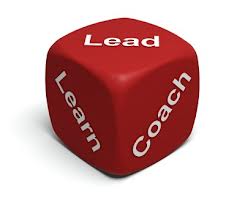 (on the basis of a LinkedIn forum question…)
(on the basis of a LinkedIn forum question…)
This forum question is “alive” from January 2014… I have cherry-picked some comments…
The original question went like this (from James Stokes founding member at CoachingCloud™ - Coaching Cloud in a LinkedIn group):
“I was in a meeting this morning and the question came up "What’s the difference between coaching and mentoring?" - I am curious to find out what the group think...”
There were a good amount of classical answer like:
…that of Dr. Ethelle Lord President at R4Y and ICA
“Great question, James. Mentoring is modeling for the client (supportive and encouraging with no clear goal in mind) whereas coaching is bridging the gap between where the client is and where they want to be (pro-active with fieldwork and a clear goal in mind).”
…or were used sorts of metaphors like that of Joyce Gilmer, CPC, CLC
Mentors-pour "into you" their level of experience and expertise, while Coaches pull "out of you" what's in you and help you unlock life's passion and reach your fullest potential to live your best life. (Much like a sports coach would)”
…or very detailed one like that of Prabhaker N Thakur
"Hi James,
Though both Coaching and Mentoring sometimes appear to be similar and the paths may cross or overlap, still there are some basic differences.
COACHING:
Coaching is often about discovery. It is based on the premise that the coachee knows best where s/he stands in present and wants to go in future and just needs to remove the blind spots by increasing awareness.
Coaching is a paid association between a coach and a coachee
A coach may or may not be an expert in the areas of the client
Can be done for skill based issues, but most of the time it addresses something more than skills and at the attitudinal level
It is focused, but non-directional. A coach walks by the side of the client, instead of leading him/her in anyway.
MENTORING:
Mentoring is mostly uni-directional and often for specific skill based issues.
It is not a paid association.
A Mentor is often an expert in her/his field having walked the path on which the mentee wishes to walk in the future.
Mentor often takes the lead by instructing the Mentee how to do something.
Over a period of time, with strengthening of the bond, and with increased awareness of the mentee, the Mentor may slip into the role of a Coach to some extent, but the financial arrangement does not change.
My two bits. Hope it helps.
Prabhaker"
…or the ones like this I liked very much like this one from Robert Hutchinson
"This is a great question! In my view there is a grey area between effective coaching and effective mentoring that the practitioner needs to navigate. I agree with Donald Craig "Mentors may become coaches during the implementation phase of an exploration, and coaches may become mentors when solution options must be visited before attempting specifics actions".
I think the two following ICF core competencies which mention "broader perspectives" and "Advocates ... points of view" are often overlooked by the "coachee has all the answers" school of thought. For example if a client isn't aware of mindfulness it is a concept they could never work out for themselves.
ICF 8.5
Communicates broader perspectives to clients and inspires commitment to shift their viewpoints and find new possibilities for action.
ICF 9.7
Advocates or brings forward points of view that are aligned with client goals and, without attachment, engages the client to consider them.
I will happily provide information for clients but I will never tell them what to do ("without attachment"). What the client does with the information is for them to decide.
In my view the key is to be clear around content, process, information and advice. The coach manages the process. A coach or a mentor can provide information. A mentor will give advice. And the client will always own the content.
Of course coaching is very individual and great coaching comes when coaches are aware of their own coaching style, their comfort zone and the needs and expectations of the client."
…and then I put sg to this last marvelous one (Miklos A. Szilagyi)
Excellent and "documented" (by cited relevant ICF competency-elements), like it very much...:-))) I would just add - being very much in line what was said expertly and in a good summary fashion - that in my view mentor is the higher classification category as for the method...
He/she is more free to use what he/she sees necessary and might be really good & effective if he/she is as long and as broad a coach as possible...
Perhaps arguably a mentor's action radius is more limited to his/her real experiences/competencies areas while a coach is deemed to be the expert of the more general aspect of the human development, self-awareness, learning and is deemed to be less an actual expert in the client's domain... i.e. the balance between the agent's focus on the process and eventual plus information...
These distinctions might also help to make at all a difference between the two activities, mentoring and coaching..."


Ajánlott bejegyzések:
A bejegyzés trackback címe:
Kommentek:
A hozzászólások a vonatkozó jogszabályok értelmében felhasználói tartalomnak minősülnek, értük a szolgáltatás technikai üzemeltetője semmilyen felelősséget nem vállal, azokat nem ellenőrzi. Kifogás esetén forduljon a blog szerkesztőjéhez. Részletek a Felhasználási feltételekben és az adatvédelmi tájékoztatóban.